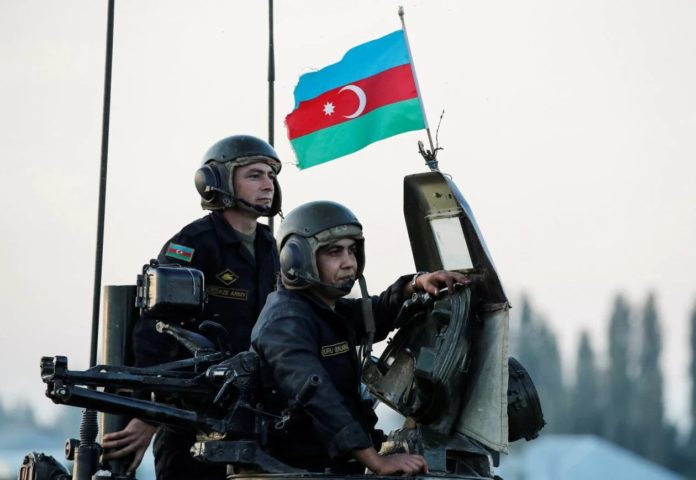By Michael Rubin
WASHINGTON (National Interest) – The September 11, 2001, terror attacks brought a brief moment of unity to Americans but also ushered in a period of partisan foreign policy. During the Bush administration, Democrats drew partisan lines on the 2003 Iraq war, at least after they found little evidence that weapons of mass destruction existed. Republicans repaid the favor first on the Libya intervention, at least after the Benghazi debacle, and then on the 2015 Iran nuclear deal. Israel and Saudi Arabia remain firmly within progressive crosshairs.
Joe Biden has made healing partisan discord a pillar of his campaign. Should the former vice president wish to carry that promise over to foreign policy, then he would find no better place to start than leading a bipartisan effort to stop the Azerbaijani assault on Nagorno-Karabakh, or Arsakh as locals call it. Nagorno-Karabakh is a mountainous region historically populated by Armenians. Soviet premier Joseph Stalin, however, transferred the region to Azerbaijani control as he sought to undercut nationalism in the Caucasus. Decades of communism imposed from afar were not enough to undo millennia of culture and history, however. As the Soviet Union crumbled, violence erupted between Armenia and Azerbaijan while Armenians in the mountainous region fought ethnic cleansing and sought to rejoin Armenia. In the fighting that followed, Armenians largely re-asserted control over Nagorno-Karabakh, and the region has acted as a de facto independent republic ever since.
Against the backdrop of the initial fighting and credible reports of ethnic cleansing, Congress passed the Freedom Support Act, Section 907 of which determined U.S. aid “may not be provided to the Government of Azerbaijan until the President determines, and so reports to the Congress, that the Government of Azerbaijan is taking demonstrable steps to cease all blockades and other offensive uses of force against Armenia and Nagorno-Karabakh.” Azerbaijan has long argued this sanction was unfair given that the U.S. State Department recognizes and affirms the Stalin-era border changes, but initially found little support in Congress or the White House.
This changed after the September 11, 2001, terrorist attacks. Azerbaijani president Heydar Aliyev, father of current leader Ilham Aliyev and mastermind of the initial attempt to encircle Nagorno-Karabakh and drive out Armenians, allied himself with the United States in the wake of the Al Qaeda strikes and declared itself an ally in President George W. Bush’s “Global War on Terror.” Aliyev allowed Azerbaijan to be used for a number of counterterrorism operations, and the country also served as an important listening post as tensions mounted between the United States and Iran. The United Kingdom, perhaps motivated by British Petroleum’s interests in Azerbaijan, encouraged the rapprochement as did Israel, which Azerbaijan cultivated both directly and through Jewish organizations in the United States.
As a reward for Azerbaijan’s positioning itself as a U.S. ally in a time of need, Congress amended Section 907 to allow a presidential waiver of restrictions on aid to Azerbaijan if such a waiver “is necessary to support United States efforts to counter international terrorism; is necessary to support the operational readiness of United States Armed Forces or coalition partners to counter international terrorism; is important to Azerbaijan’s border security; and will not undermine or hamper ongoing efforts to negotiate a peaceful settlement between Armenia and Azerbaijan or be used for offensive purposes against Armenia.”









